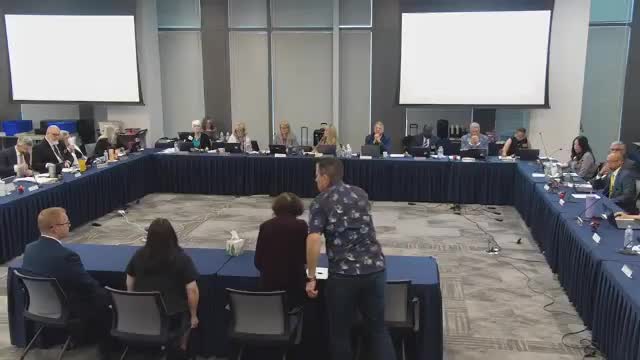Board accepts survey findings for Sul Ross University’s Alpine BSN program, issues requirements
Get AI-powered insights, summaries, and transcripts
Subscribe
Summary
Texas Board of Nursing accepted staff findings from a September survey visit to Sul Ross State University's Alpine baccalaureate nursing program and issued requirements; the program remains on warning status.
The Texas Board of Nursing voted Oct. 23 to accept the staff report and impose corrective requirements following a September survey visit to Sul Ross State University’s baccalaureate nursing program in Alpine, Texas.
Board consultant Jan Hooper presented the findings and noted the program’s unique challenges as a small, rural program that launched a new BSN offering in 2021 and was placed on warning status. Hooper and board staff described the site visit and said program leadership had already taken multiple steps to address concerns, including adding full-time faculty and launching student tutoring and mentorship efforts.
Sul Ross Dean and program director Minerva Gonzales and College of Health Sciences representative Dean Culpepper described steps taken since the April review. Gonzales told the board that the program had added four full‑time faculty and implemented tutoring and student‑led mentoring sessions; she said those steps and stronger college support had helped retention and student preparedness. Hooper reported the program had 19 students in its senior class and that smaller cohorts in earlier years were not uncommon for rural programs.
Board members asked about remediation measures and student support, including whether paid peer tutoring models or NCLEX item‑writing instruction for newer faculty had been considered. Hooper and Gonzales discussed simulation options and the difficulty of clinical placements in remote areas and noted the program’s use of extension sites and partnerships.
Ken Johnson moved to accept the report of the survey visit and to issue the requirements listed in the attached letter; Ellie Adamson seconded the motion. The board approved the motion during the meeting.
Why it matters: Approval of the staff findings means the board will monitor the program’s progress under the warning status and require Sul Ross to comply with the corrective requirements in the board’s letter. The action reflects the board’s stated concern for maintaining education quality while recognizing the operational challenges faced by rural nursing programs.
What’s next: Sul Ross must fulfill the listed requirements and report back to the board per the timeline in the board’s letter. The board recommended continued monitoring and offered guidance on tutoring, faculty development, and use of simulation where clinically appropriate.
